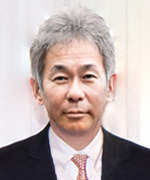Message From the president
 Greeting by the President
Greeting by the President
President, Japanese Society for Dialysis Therapy
Tadashi Tomo
(Clinical Professor, Clinical Engineering Research Center, Faculty of Medicine, Oita University)
At the meeting of the Board of Directors of the Japanese Society for Dialysis Therapy (JSDT) held on June 6, 2024, I was elected as the President of the general incorporated association, the JSDT .
The JSDT was initially constituted in 1968 as a voluntary academic organization, the Dialysis Research Association. It was renamed as the Japanese Society for Dialysis Therapy (Japanese name: Nihon Tosekiryoho Gakkai) in 1985. Then, in 1993, it was approved as an incorporated association with its Japanese name changed into Nihon Tosekii Gakkai. Since September 2012, it has been categorized as a general incorporated association and officially named as the General Incorporated Association JSDT. Currently, JSDT has more than 19,000 members (including individual members, vorganizational
Having been elected as the president of this professional society with such a history and tradition, I feel greatly honored, and at the same time, shall consider it my great responsibility to fulfill the role assigned to me.
Our society is aimed at accumulating academic evidence and providing quality care and treatment to patients, thereby contributing to an improved life expectancy and healthy lifespan for renal failure and dialysis patients.
We believe that we have contributed to improving the life expectancy of dialysis patients by maintaining standardization
In addition, we have formulated the “Functional Classification of Blood Purifiers” which serves as a reliable basis for blood purification therapy, and published revisions of this document at appropriate times. An adequate understanding of the features of the different types of blood purifiers could be expected to allow selection of the appropriate blood purifier tailored to the condition of individual patients, and to select and implement the appropriate type of blood purification therapy to prevent complications and alleviate the symptoms in dialysis patients. The water quality standards set by the JSDT for dialysis water and dialysates are the most stringent in the world. Meeting and complying with this set of standards, many dialysis facilities in Japan have achieved world-leader status in dialysate purification. In addition, we shall continue to present and review reports from the committees on the basic technologies, etc., for blood purification therapy, since these efforts are also important for improving the life expectancy of dialysis patients and prolonging their healthy lifespan.
Statistical surveys by the JSDT, with data collected by the volunteer spirit of the members are of unprecedented value around the world and can be viewed as a treasure of the members of the JSDT. Data obtained from these surveys are of critical importance as a guidepost indicating the future direction of dialysis therapy in Japan. We rely on the major efforts made by individual JSDT members in collecting statistical data. In regard to the data collection methods, we shall endeavor to facilitate introduction and widespread use of the EDC (electronic data capture) system. Your cooperation will be appreciated.
Regarding board-certified
To assure the safety of treatment using new devices or the like related to vascular access, we have created the certification system for physicians specializing in vascular access endovascular treatment. We shall continue our efforts to spread this certification system, accompanied by measures to facilitate standardization
Nowadays, attention has begun to be paid to the issue of large loads on our living environments and natural environments arising from renal replacement therapy on a global scale, leading to discussions over the theme of “Green Dialysis” or “Green Nephrology” at many conferences and professional societies. This theme regarding “Green Dialysis” or “Green Nephrology” is quite important, but also poses a challenge for healthcare providers engaged in dialysis therapy and industrial sectors related to such therapy. We propose to discuss and investigate the means and methods to deal with this theme “Green Dialysis” or “Green Nephrology” within the JSDT, together with relevant organizations.
Finally, as the President of the JSDT, I would like to express my resolve to cooperate/colla
July 2024
